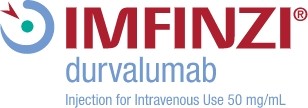
- Bile Duct Cancer and Gallbladder Cancer
- Prescribing
Information - Patient
Information - See Approved
UseSelect your SCLC stage
- Visit Healthcare
Professionals Site
Bile duct cancer (cholangiocarcinoma) and gallbladder cancer are biliary tract cancers (BTCs). These cancers occur in the bile ducts or gallbladder. It’s helpful to understand the anatomy of the bile ducts and the gallbladder to understand these cancers.
The bile ducts are a series of thin tubes located in the liver. Their main job is to deliver bile, which is made in the liver, from the liver directly to the intestines or to the gallbladder. Bile helps the body digest fat in food.
The gallbladder is a small organ where bile is stored. It is located below the liver.
May affect the liver
Can be caused by inflammation or blockage of the bile ducts over time
Typically do not cause symptoms in the early stages
Have often already spread to other parts of the body at the time of diagnosis
Bile duct cancer (cholangiocarcinoma) and gallbladder cancer often do not present symptoms in the early stages. Most of the time, it isn’t until these cancers reach locally advanced or metastatic stages that symptoms start to show.
Getting diagnosed with advanced bile duct cancer (cholangiocarcinoma) or
gallbladder cancer isn't something anyone can prepare for. These cancers usually don't cause symptoms in the
early stages, so a diagnosis can come as a shock.
But as the treatment landscape evolves, there are reasons to be hopeful. If things get especially
hard, remember you can always talk to your doctor and get in touch with patient advocates who can share
practical tips and overall support.
*Gemcitabine and cisplatin.
IMFINZI is a medicine that may treat certain cancers by working with your immune system. IMFINZI can cause your immune system to attack normal organs and tissues in any area of your body and can affect the way they work. These problems can sometimes become severe or life-threatening and can lead to death. You can have more than one of these problems at the same time. These problems may happen anytime during treatment or even after your treatment has ended.
IMFINZI is a prescription medicine used to treat adults with a type of cancer called biliary tract cancer (BTC), including cancer of the bile ducts (cholangiocarcinoma) and gallbladder cancer. IMFINZI may be used in combination with chemotherapy medicines gemcitabine and cisplatin when your BTC has spread to nearby tissues (locally advanced), or has spread to other parts of the body (metastatic).
It is not known if IMFINZI is safe and effective in children.
Getting medical treatment right away may help keep these problems from becoming more serious. Your healthcare provider will check you for these problems during your treatment with IMFINZI. Your healthcare provider may treat you with corticosteroid or hormone replacement medicines. Your healthcare provider may also need to delay or completely stop treatment with IMFINZI if you have severe side effects
Before you receive IMFINZI, tell your healthcare provider about all of your medical conditions, including if you:
Females who are able to become pregnant:
Tell your healthcare provider about all the medicines you take, including prescription and over-the-counter medicines, vitamins, and herbal supplements.
The most common side effects of IMFINZI when used with gemcitabine and cisplatin in adults with biliary tract cancer (BTC) include feeling tired, nausea, constipation, decreased appetite, stomach (abdominal) pain, rash, and fever.
Tell your healthcare provider if you have any side effect that bothers you or that does not go away. These are not all the possible side effects of IMFINZI. Ask your healthcare provider or pharmacist for more information.
Call your doctor for medical advice about side effects. You
may report side
effects related to AstraZeneca products. If you prefer to
report these to the FDA, either visit www.FDA.gov/medwatch or call 1-800-FDA-1088.
Call your doctor for medical advice about side effects. You
may report side
effects related to AstraZeneca products. If you prefer to
report these to the FDA, either visit www.FDA.gov/medwatch or call 1-800-FDA-1088.
IMFINZI is a prescription medicine used to treat adults with a type of cancer called biliary tract cancer (BTC), including cancer of the bile ducts (cholangiocarcinoma) and gallbladder cancer. IMFINZI may be used in combination with chemotherapy medicines gemcitabine and cisplatin when your BTC has spread to nearby tissues (locally advanced), or has spread to other parts of the body (metastatic).
It is not known if IMFINZI is safe and effective in children.
Please see Full Prescribing Information including Medication Guide for IMFINZI.
Please see Full Prescribing Information including Medication Guide for IMFINZI.
IMFINZI is a medicine that may treat certain cancers by working with your immune system. IMFINZI can cause your immune system to attack normal organs and tissues in...
IMFINZI is a medicine that may treat...
IMFINZI is a prescription medicine used to treat adults with a type of cancer called biliary tract cancer (BTC), including cancer of the bile ducts (cholangiocarcinoma) and gallbladder cancer. IMFINZI may be used in combination with chemotherapy medicines gemcitabine and cisplatin when your BTC has spread to nearby...
IMFINZI is a medicine that may treat certain cancers by work...
IMFINZI is a medicine that may treat certain cancers by working with your immune...